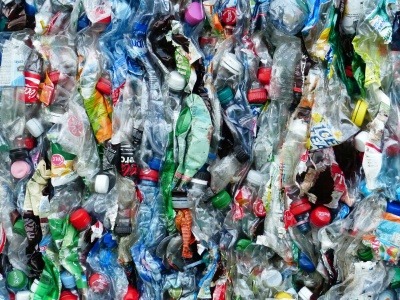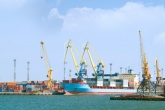Plastic packaging recycling system ‘disadvantages’ councils, says study
A new study released last week (8 May) supported by the Department for Environment, Food and Rural Affairs (Defra) suggests that regulatory barriers and technological ‘lock-in’ are hampering plastic packaging recycling efforts.
Carried out by Brunel University London and the University of Leeds, funded via the Plastic and Research Innovation Fund and the Economic and Social Research Council (ESRC), the new study, entitled ‘Plastic packaging – How do we get to where we want to be?’, found that the current plastic packaging system 'disadvantages’ local authorities and ‘discourages’ efforts to invest in green infrastructure that takes advantage of technological change.
 According to the research, this failure to embrace technological innovations leads to an over-dependence on waste exports to markets with underdeveloped recycling policies and infrastructure, while impairing consumer decision-making about how best to dispose of plastic packaging waste.
According to the research, this failure to embrace technological innovations leads to an over-dependence on waste exports to markets with underdeveloped recycling policies and infrastructure, while impairing consumer decision-making about how best to dispose of plastic packaging waste.
Prior to the outbreak of the Covid-19 pandemic, the UK sent around two thirds of its plastic waste abroad, leading to pressure to ban the export of plastic waste to developing countries, culminating in such a ban being included in the government’s Environment Bill.
With the cost burden piled inequitably on local authorities, the researchers from Brunel and Leeds Universities found that councils often have to tie themselves to long-term contracts as long as 25 years to make recycling and waste collections economically viable, which makes it difficult for local authorities to make dynamic changes to their infrastructure.
The researchers maintain that a more equitable distribution of the costs and value within the packaging recycling system can ‘incentivise long-term investment’. However, the ‘regulatory and technological ‘locked-ins’ need to be confronted, add the researchers.
The study states that the policies contained in the Resources and Waste Strategy – an extended producer responsibility (EPR) for packaging, a deposit return scheme (DRS) for beverage containers and consistency in kerbside recycling collections – seek to confront the issues of costs and value in the system and praises Defra’s participation in the study.
A new approach to monitoring
The study used a new systems approach to analyse the UK’s plastic packaging system called ‘Complex Value Optimisation for Resource Recovery’ (CVORR) and proposes new metrics for the government to use when monitoring the progress of policy changes in England in the long-term.
The four new metrics are:
- Reprocessing efficiency (Environmental): Measures the proportion of plastic material that is reprocessed into secondary material within the UK.
- Per cent losses for sorting facilities (Technical): Measures the losses and rejections of plastic packaging waste sent to sorting facilities.
- Cost efficiency (Economic): Measures the cost that can be avoided and/or the revenue that can be captured at an increased recycling rate.
- Inequality (Social): Measures the allocation of costs and incomes produced by the recycling process in the overall system, in order to identify the misalignment between cost-bearing and revenue allocation activities.
The research states that with the UK entering a new regulatory reality as it extricates itself from the EU and its structures, such a systemic approach to monitoring and effecting change will be ‘much needed’.
Commenting on the research, Dr Eleni Iacovidou, a Lecturer in Environmental Management at Brunel, who led the study, said: “Innovation in the waste and recycling industry is really swift, but our local authorities cannot take advantage under the current system,” said “Confronting and breaking the lock-ins to current regulations and infrastructures is key to achieving radical transformations in the plastic packaging system and in resource recovery systems more generally.”
“The complexity of the plastic packaging system means that there is no one perfect solution to the many problems that plague the plastic packaging system, and that a number of targeted, informed ways of addressing these issues is needed. The CVORR framework helps us to understand these problems and find solutions in a much clearer, joined-up way.”
You can read the report, ‘Plastic packaging – How do we get to where we want to be?’ on the Defra website.








